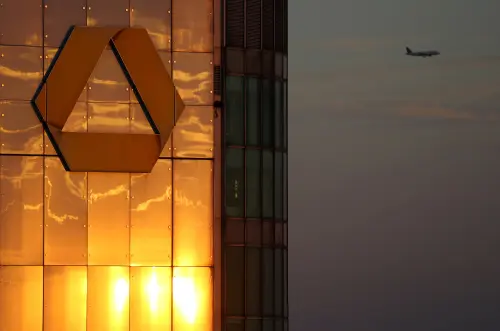FRANKFURT, March 14 (Reuters) - UniCredit has been granted up to 29.9% of Commerzbank by the European Central Bank, the Italian bank announced on Friday. This development potentially sets the stage for CEO Andrea Orcel to explore a takeover of Germany's second-largest listed bank. Commerzbank, like other banks, has a tumultuous history with major mergers and acquisitions.
Here are some significant moments in the bank's history:
1870-1970s: Founded in Hamburg, later moved to Berlin, and established itself in Frankfurt by 1970 as a prominent bank in Germany, focusing on retail and corporate customers.
1970s: Expanded to London, New York, and other European capitals. Acquired Dresdner Bank, one of Germany's largest banks, from insurer Allianz in a $14.5 billion deal.
In response to the global financial crisis, Commerzbank became the first commercial bank in Germany to seek government capital, leading to a bailout that saw Germany acquiring a 25% plus one share stake in exchange for a 10 billion euro capital injection.
Amid ongoing European debt crises, Commerzbank underwent a multi-year restructuring.
Various stakeholders, including Cerberus and BNP Paribas, explored potential mergers with Commerzbank, but such plans did not materialize.
The bank went through strategic shifts, failed merger talks with Deutsche Bank, and leadership changes, with the latest CEO, Manfred Knof, aiming to maintain independence.
UniCredit's interest in a merger with Commerzbank resurfaced in early 2022, leading to ongoing discussions between the two entities.
Commerzbank has recently declared strong financial results, with a focus on its independent strategic direction despite various external pressures and stakeholders' interests.
Throughout the timeline, Commerzbank has navigated challenges while striving to adapt to market dynamics and maintain its position as a key player in the banking sector.
